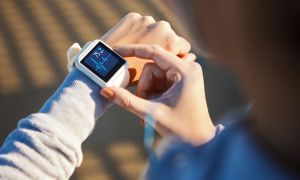Advertisement
It is completely natural to think that your blood sugar should be lower after a night sleep. After all, you have not eaten anything for many hours. But the body needs glucose 24 hours a day, and if you are not getting it from food, your body will turn to stored glucose in the liver. Your pancreas needs to make insulin to deal with this glucose, just as it does for glucose derived from the food you eat. Unfortunately, in many people with diabetes, insulin production during periods of fasting is as bad as or even worse than during eating. Therefore, the sugar may rise overnight because glucose being produced by the liver is not matched by adequate insulin from the pancreas. Certain medications, including glyburide (brand name Micronase or DiaBeta), glipizide (brand name Glipizide) and glimepiride (brand name Amaryl), improve meal-related insulin production more than fasting insulin production. As a result, many people who take these medicines have higher glucose levels in the morning than before bed at night.
Sometimes a snack at bedtime with protein, some healthy fat and a slowly absorbed carbohydrate, such as two teaspoons of peanut butter on a half-slice of stone-ground whole-wheat bread, may actually lower the morning glucose because it prevents you from entering a fasting state while sleeping. If this does not work, using a long-acting form of insulin as part of the treatment is usually very effective.
Sometimes a snack at bedtime with protein, some healthy fat and a slowly absorbed carbohydrate, such as two teaspoons of peanut butter on a half-slice of stone-ground whole-wheat bread, may actually lower the morning glucose because it prevents you from entering a fasting state while sleeping. If this does not work, using a long-acting form of insulin as part of the treatment is usually very effective.
High morning blood glucose levels before breakfast can be a puzzle. If you haven't eaten, why did your blood glucose level go up? There are two common reasons for high before-breakfast blood glucose levels. One relates to hormones that are released in the early part of sleep (called the Dawn Phenomenon). The other is from taking too little insulin in the evening. To see which one is the cause, set your alarm to self-monitor around 2 or 3 a.m. for several nights and discuss the results with your health care provider.
Continue Learning about Diabetes
Important: This content reflects information from various individuals and organizations and may offer alternative or opposing points of view. It should not be used for medical advice, diagnosis or treatment. As always, you should consult with your healthcare provider about your specific health needs.





